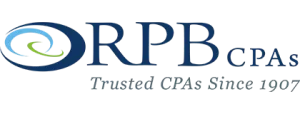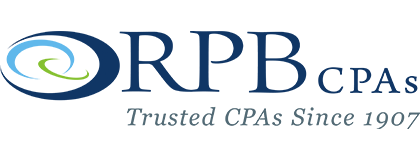RPB_Admin
Employers can truncate SSNs on employees’ W-2s
The IRS recently issued final regulations that permit employers to voluntarily truncate employee Social Security Numbers (SSNs) on copies of Forms W-2 furnished to employees. The purpose of the regs is to aid employers’ efforts in protecting workers from identity theft. Proposals and comments On September 20, 2017, the IRS issued proposed regs on the truncation concept. A truncated taxpayer identification number (TTIN) displays only the last four digits of a taxpayer identifying number and uses asterisks or “Xs” for the first five digits. Seventeen comments were submitted on the notice of proposed rulemaking and many recommended adopting the
Auditing grant compliance
Has your organization received any public or private grants to fund its growth? Grants sometimes require an independent audit by a qualified accounting firm. Here’s what grant recipients should know to help facilitate matters and ensure compliance at all levels. Federal compliance Federal awards require compliance with the Uniform Administrative Requirements, Cost Principles, and Audit Requirements for Federal Awards (also known as 2 CFR Part 200). This guidance requires any entity that expends $750,000 or more of federal assistance received for its operations to undergo a “single audit,” which is a rigorous, organizationwide examination. To provide grant recipients with
A few basics of safe harbor 401(k) plans
Many growing businesses and other types of employers want to offer a 401(k) plan but don’t want to deal with the stress and administrative challenges of following the IRS’s nondiscrimination testing rules for elective deferrals and matching contributions. One potential solution may be to set up a “safe harbor” 401(k). Such plans aren’t subject to nondiscrimination testing if they satisfy certain contribution, vesting and notice requirements. Here are a few basics on this intriguing retirement benefits option. Start-up requirements To immediately start a safe harbor 401(k), a new plan must have at least three months remaining in the short plan
Is it time to hire a CFO or controller?
Many business owners reach a point where managing the financial side of the enterprise becomes overwhelming. Usually, this is a good thing — the company has grown to a point where simple bookkeeping and basic financial reporting just don’t cut it anymore. If you can relate to the feeling, it may be time to add a CFO or controller. But you’ve got to first consider whether your payroll can take on this generally high-paying position and exactly what you’d get in return. The broad role A CFO or controller looks beyond day-to-day financial management to do more holistic, big-picture
Employee pickup of SPDs isn’t a good idea
Many organizations have employees who become eligible for benefits during their employment. At such time, the employer must provide them with a summary plan description (SPD) of any health benefits plan (or retirement plan) covered by the Employee Retirement Income Security Act (ERISA). One commonly asked question in this situation is: Can we just put a stack of SPDs in the HR office and tell employees to come pick one up instead of furnishing the SPDs by mail or electronically? Although having a supply of SPDs available in HR isn’t necessarily a bad idea, it’s not an advisable approach
Should you revise your nonprofit’s bylaws?
Your not-for-profit has likely grown and evolved since it was founded. Have your bylaws kept pace? Bylaws are the rules and principles that define your organization — and, if you haven’t revisited them recently, they may not be as effective as they could be. Rules and procedures Typically, bylaws cover such topics as the broad charitable purpose of an organization. They also include rules about the size and function of the board; election terms and duties of directors and officers; and basic guidelines for voting, holding meetings, electing directors and appointing officers. Without being too specific, your bylaws should
AUP engagements: A middle ground between audits and consulting services
Your CPA offers a wide menu of services. An audit is a familiar type of attestation service that provides a formal opinion about whether the company’s financial statements conform to U.S. Generally Accepted Accounting Principles (GAAP). Consulting services, in contrast, provide advice or technical assistance that’s only for internal purposes. That is, lenders and other third parties can’t rely on the findings, conclusions and recommendations presented during a consulting project. If you need a report that falls somewhere between these alternatives, consider an agreed upon procedures (AUP) engagement. Scope An AUP engagement uses procedures similar to an audit, but
Have the States Gone Too Far?
As the Wayfair decision begins to settle in and more and more States write regulations to follow with what items they feel are subject to sales tax in there state for out-of-state sellers, it appears the trend is just getting started. Employers BEWARE! The Wayfair decision has definitely changed how many employers need to keep records for sales taxation and the large new paperwork burden it is placing on them. However, what's next? Many believe the Wayfair decision will directly impact income tax filing regulations as well many more companies subject to state income tax filing obligations as well.
Fiduciary duties: What your board members need to know
Not-for-profit board members — whether compensated or not — have a fiduciary duty to the organization. Some states have laws governing the activities of nonprofit boards and other fiduciaries. But not all board members are aware of their responsibilities. To protect your nonprofit’s financial health and integrity, it’s important that you help them understand. Primary responsibilities In general, a fiduciary has three primary responsibilities: Duty of care. Board members must exercise reasonable care in overseeing the organization’s financial and operational activities. Although disengaged from day-to-day affairs, they should understand its mission, programs and structure, make informed decisions, and consult
Measuring “fair value” for financial reporting purposes
The standard for valuing certain assets and liabilities under U.S. Generally Accepted Accounting Principles (GAAP) is “fair value.” This differs from other valuation standards that may apply when valuing a security or business interest in a litigation or mergers and acquisitions (M&A) setting. FASB guidance The Financial Accounting Standards Board (FASB) issued Accounting Standards Codification (ASC) Topic 820, Fair Value Measurements and Disclosures , in 2006. It defines fair value as “the price that would be received to sell an asset or paid to transfer a liability in an orderly transaction between market participants at the measurement date.” The



